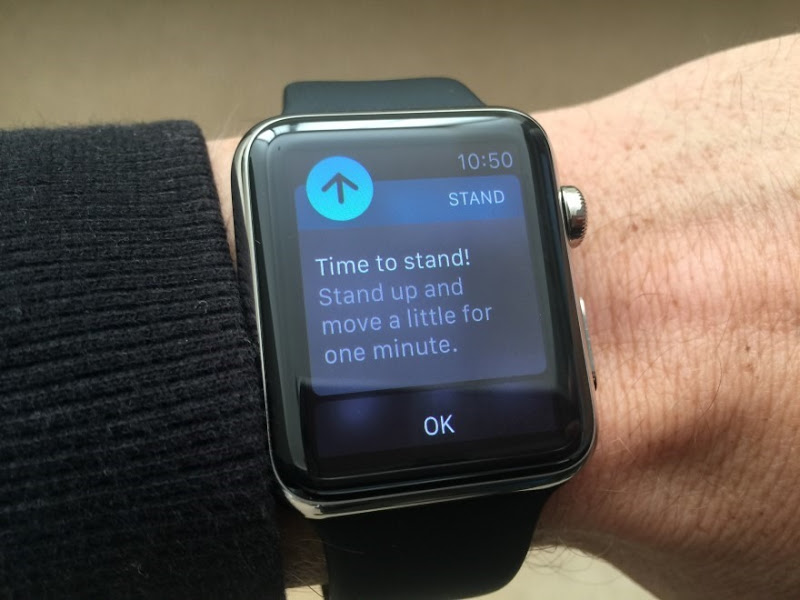Are You Embarrassed By Your Online Privacy Abilities? This Is What To Do
You have absolutely no privacy according to privacy advocates. Despite the cry that those initial remarks had triggered, they have been proven mainly proper.
Cookies, beacons, digital signatures, trackers, and other technologies on sites and in apps let advertisers, companies, federal governments, and even criminals build a profile about what you do, who you communicate with, and who you are at very personal levels of information. Keep in mind the 2013 story about how Target could know if a teen was pregnant before her mom and dad knew, based upon her online activity? That is the standard today. Google and Facebook are the most well-known industrial internet spies, and among the most pervasive, but they are barely alone.
If You Don’t Online Privacy Using Fake ID Now, You’ll Hate Yourself Later
The innovation to monitor everything you do has actually just improved. And there are many brand-new methods to monitor you that didn’t exist in 1999: always-listening representatives like Amazon Alexa and Apple Siri, Bluetooth beacons in smartphones, cross-device syncing of browsers to provide a complete picture of your activities from every gadget you utilize, and of course social networks platforms like Facebook that thrive since they are designed for you to share whatever about yourself and your connections so you can be generated income from.
Trackers are the most recent silent way to spy on you in your web browser. CNN, for instance, had 36 running when I checked recently.
Apple’s Safari 14 browser presented the integrated Privacy Monitor that truly demonstrates how much your privacy is under attack today. It is quite disconcerting to utilize, as it reveals simply how many tracking attempts it prevented in the last 30 days, and exactly which websites are trying to track you and how frequently. On my most-used computer, I’m balancing about 80 tracking deflections per week– a number that has actually gladly reduced from about 150 a year back.
Safari’s Privacy Monitor function shows you the number of trackers the web browser has blocked, and who precisely is trying to track you. It’s not a reassuring report!
Online Privacy Using Fake ID On The Market – How A Lot Is Yours Price?
When speaking of online privacy, it’s crucial to understand what is generally tracked. A lot of websites and services do not in fact know it’s you at their site, just a web browser related to a great deal of attributes that can then be become a profile. Advertisers and online marketers are trying to find particular type of people, and they utilize profiles to do so. For that need, they don’t care who the person in fact is. Neither do crooks and organizations looking for to dedicate scams or control an election.
When companies do want that individual info– your name, gender, age, address, telephone number, business, titles, and more– they will have you register. They can then associate all the information they have from your gadgets to you particularly, and use that to target you individually. That’s typical for business-oriented sites whose advertisers want to reach particular individuals with purchasing power. Your individual information is precious and sometimes it may be essential to register on sites with faux details, and you may wish to consider Yourfakeidforroblox!. Some websites desire your e-mail addresses and personal information so they can send you marketing and make cash from it.
Criminals might want that data too. May insurance providers and healthcare organizations looking for to filter out unfavorable consumers. For many years, laws have actually tried to prevent such redlining, but there are creative ways around it, such as setting up a tracking device in your vehicle “to conserve you money” and identify those who may be higher threats however have not had the accidents yet to show it. Definitely, governments want that personal information, in the name of control or security.
When you are personally identifiable, you need to be most anxious about. It’s likewise worrying to be profiled extensively, which is what browser privacy looks for to minimize.
The browser has been the centerpiece of self-protection online, with alternatives to obstruct cookies, purge your browsing history or not record it in the first place, and shut off advertisement tracking. But these are relatively weak tools, quickly bypassed. The incognito or personal surfing mode that turns off browser history on your local computer doesn’t stop Google, your IT department, or your web service supplier from knowing what websites you went to; it just keeps someone else with access to your computer system from looking at that history on your web browser.
The “Do Not Track” ad settings in browsers are largely ignored, and in fact the World Wide Web Consortium requirements body deserted the effort in 2019, even if some browsers still include the setting. And obstructing cookies doesn’t stop Google, Facebook, and others from monitoring your habits through other means such as looking at your special device identifiers (called fingerprinting) as well as noting if you check in to any of their services– and after that linking your devices through that typical sign-in.
The internet browser is where you have the most centralized controls since the web browser is a main access point to internet services that track you (apps are the other). Despite the fact that there are ways for websites to get around them, you need to still use the tools you need to reduce the privacy intrusion.
Where mainstream desktop browsers vary in privacy settings
The location to begin is the internet browser itself. Lots of IT companies force you to utilize a specific web browser on your company computer system, so you might have no genuine choice at work.
Here’s how I rank the mainstream desktop browsers in order of privacy support, from most to least– presuming you use their privacy settings to the max.
Safari and Edge use different sets of privacy defenses, so depending upon which privacy elements concern you the most, you might view Edge as the better option for the Mac, and obviously Safari isn’t a choice in Windows, so Edge wins there. Also, Chrome and Opera are almost tied for bad privacy, with distinctions that can reverse their positions based upon what matters to you– however both need to be avoided if privacy matters to you.
A side note about supercookies: Over the years, as web browsers have supplied controls to block third-party cookies and executed controls to block tracking, website developers started using other innovations to circumvent those controls and surreptitiously continue to track users across websites. In 2013, Safari began disabling one such technique, called supercookies, that hide in web browser cache or other places so they stay active even as you switch sites. Starting in 2021, Firefox 85 and later on automatically handicapped supercookies, and Google added a comparable feature in Chrome 88.
Browser settings and finest practices for privacy
In your internet browser’s privacy settings, make certain to block third-party cookies. To provide functionality, a site legally uses first-party (its own) cookies, but third-party cookies belong to other entities (primarily marketers) who are likely tracking you in ways you do not desire. Don’t obstruct all cookies, as that will cause many sites to not work correctly.
Also set the default permissions for sites to access the video camera, location, microphone, content blockers, auto-play, downloads, pop-up windows, and notifications to a minimum of Ask, if not Off.
If your web browser doesn’t let you do that, change to one that does, given that trackers are ending up being the preferred method to keep track of users over old techniques like cookies. Keep in mind: Like lots of web services, social media services use trackers on their sites and partner sites to track you.
Use DuckDuckGo as your default online search engine, because it is more personal than Google or Bing. You can constantly go to google.com or bing.com if required.
Don’t use Gmail in your internet browser (at mail.google.com)– as soon as you sign into Gmail (or any Google service), Google tracks your activities throughout every other Google service, even if you didn’t sign into the others. If you must utilize Gmail, do so in an e-mail app like Microsoft Outlook or Apple Mail, where Google’s data collection is restricted to simply your e-mail.
Never ever utilize an account from Google, Facebook, or another social service to sign into other websites; develop your own account instead. Using those services as a practical sign-in service also gives them access to your personal data from the websites you sign into.
Do not sign in to Google, Microsoft, Facebook, etc accounts from several internet browsers, so you’re not assisting those business develop a fuller profile of your actions. If you must check in for syncing functions, think about using various web browsers for different activities, such as Firefox for individual utilize and Chrome for business. Note that utilizing multiple Google accounts will not help you separate your activities; Google understands they’re all you and will combine your activities across them.
Mozilla has a set of Firefox extensions (a.k.a. add-ons) that further protect you from Facebook and others that monitor you throughout websites. The Facebook Container extension opens a brand-new, separated web browser tab for any website you access that has embedded Facebook tracking, such as when signing into a website through a Facebook login. This container keeps Facebook from seeing the web browser activities in other tabs. And the Multi-Account Containers extension lets you open separate, isolated tabs for different services that each can have a separate identity, making it harder for cookies, trackers, and other techniques to associate all of your activity across tabs.
The DuckDuckGo online search engine’s Privacy Essentials extension for Chrome, Edge, Firefox, Opera, and Safari provides a modest privacy increase, blocking trackers (something Chrome does not do natively however the others do) and automatically opening encrypted variations of websites when offered.
While the majority of browsers now let you block tracking software application, you can surpass what the internet browsers make with an antitracking extension such as Privacy Badger from the Electronic Frontier Foundation, a long-established privacy advocacy organization. Privacy Badger is offered for Chrome, Edge, Firefox, and Opera (however not Safari, which aggressively blocks trackers on its own).
The EFF also has actually a tool called Cover Your Tracks (previously known as Panopticlick) that will evaluate your web browser and report on its privacy level under the settings you have set up. It still does reveal whether your internet browser settings obstruct tracking advertisements, obstruct undetectable trackers, and safeguard you from fingerprinting. The in-depth report now focuses nearly specifically on your browser finger print, which is the set of setup data for your internet browser and computer system that can be utilized to identify you even with maximum privacy controls made it possible for.
Do not rely on your web browser’s default settings however instead change its settings to optimize your privacy.
Material and advertisement blocking tools take a heavy approach, suppressing entire areas of a site’s law to prevent widgets and other law from operating and some website modules (typically ads) from showing, which likewise suppresses any trackers embedded in them. Ad blockers try to target advertisements particularly, whereas content blockers try to find JavaScript and other law modules that may be unwanted.
Due to the fact that these blocker tools paralyze parts of websites based upon what their creators believe are indications of unwanted site behaviours, they frequently damage the functionality of the website you are attempting to utilize. Some are more surgical than others, so the results differ commonly. If a website isn’t running as you anticipate, attempt putting the site on your browser’s “enable” list or disabling the material blocker for that site in your browser.
I’ve long been sceptical of material and advertisement blockers, not only since they eliminate the income that genuine publishers require to remain in company however also due to the fact that extortion is the business model for numerous: These services frequently charge a cost to publishers to permit their advertisements to go through, and they obstruct those advertisements if a publisher doesn’t pay them. They promote themselves as helping user privacy, but it’s barely in your privacy interest to just see ads that paid to make it through.
Naturally, desperate and dishonest publishers let advertisements specify where users wanted ad blockers in the first place, so it’s a cesspool all around. However modern-day browsers like Safari, Chrome, and Firefox progressively block “bad” advertisements (however specified, and usually quite minimal) without that extortion business in the background.
Firefox has just recently surpassed blocking bad ads to offering stricter content obstructing alternatives, more comparable to what extensions have actually long done. What you truly desire is tracker blocking, which nowadays is dealt with by many internet browsers themselves or with the help of an anti-tracking extension.
Mobile internet browsers typically offer less privacy settings even though they do the same fundamental spying on you as their desktop cousins do. Still, you ought to utilize the privacy controls they do offer.
All web browsers in iOS utilize a common core based on Apple’s Safari, whereas all Android internet browsers use their own core (as is the case in Windows and macOS). That is also why Safari’s privacy settings are all in the Settings app, and the other internet browsers manage cross-site tracking privacy in the Settings app and execute other privacy functions in the browser itself.
Here’s how I rank the mainstream iOS web browsers in order of privacy support, from a lot of to least– presuming you use their privacy settings to the max.
And here’s how I rank the mainstream Android internet browsers in order of privacy support, from a lot of to least– likewise presuming you use their privacy settings to the max.
The following two tables show the privacy settings readily available in the major iOS and Android browsers, respectively, since September 20, 2022 (variation numbers aren’t often revealed for mobile apps). Controls over area, microphone, and electronic camera privacy are handled by the mobile operating system, so use the Settings app in iOS or Android for these. Some Android browsers apps provide these controls straight on a per-site basis too.
A couple of years back, when advertisement blockers ended up being a popular method to combat abusive websites, there came a set of alternative web browsers indicated to strongly safeguard user privacy, attracting the paranoid. Brave Browser and Epic Privacy Browser are the most widely known of the new breed of web browsers. An older privacy-oriented web browser is Tor Browser; it was developed in 2008 by the Tor Project, a non-profit founded on the principle that “web users need to have private access to an uncensored web.”
All these browsers take a highly aggressive approach of excising whole pieces of the sites law to prevent all sorts of functionality from operating, not simply advertisements. They frequently obstruct features to register for or sign into sites, social networks plug-ins, and JavaScripts just in case they might collect personal information.
Today, you can get strong privacy security from mainstream web browsers, so the requirement for Brave, Epic, and Tor is rather small. Even their biggest claim to fame– blocking advertisements and other irritating content– is progressively handled in mainstream internet browsers.
One alterative internet browser, Brave, seems to utilize ad blocking not for user privacy protection but to take incomes away from publishers. It tries to force them to utilize its ad service to reach users who select the Brave internet browser.
Brave Browser can reduce social media integrations on websites, so you can’t use plug-ins from Facebook, Twitter, LinkedIn, Instagram, and so on. The social media firms gather huge quantities of personal data from people who utilize those services on websites. Do note that Brave does not honor Do Not Track settings at websites, treating all websites as if they track advertisements.
The Epic internet browser’s privacy controls are similar to Firefox’s, however under the hood it does one thing very differently: It keeps you far from Google servers, so your information does not travel to Google for its collection. Lots of web browsers (especially Chrome-based Chromium ones) utilize Google servers by default, so you don’t realize how much Google really is associated with your web activities. If you sign into a Google account through a service like Google Search or Gmail, Epic can’t stop Google from tracking you in the browser.
Epic also offers a proxy server suggested to keep your web traffic away from your internet service provider’s information collection; the 1.1.1.1 service from CloudFlare uses a comparable center for any internet browser, as described later.
 Tor Browser is a necessary tool for activists, journalists, and whistleblowers most likely to be targeted by governments and corporations, along with for people in nations that monitor the web or censor. It utilizes the Tor network to conceal you and your activities from such entities. It likewise lets you release sites called onions that require extremely authenticated gain access to, for very private information circulation.
Tor Browser is a necessary tool for activists, journalists, and whistleblowers most likely to be targeted by governments and corporations, along with for people in nations that monitor the web or censor. It utilizes the Tor network to conceal you and your activities from such entities. It likewise lets you release sites called onions that require extremely authenticated gain access to, for very private information circulation.

